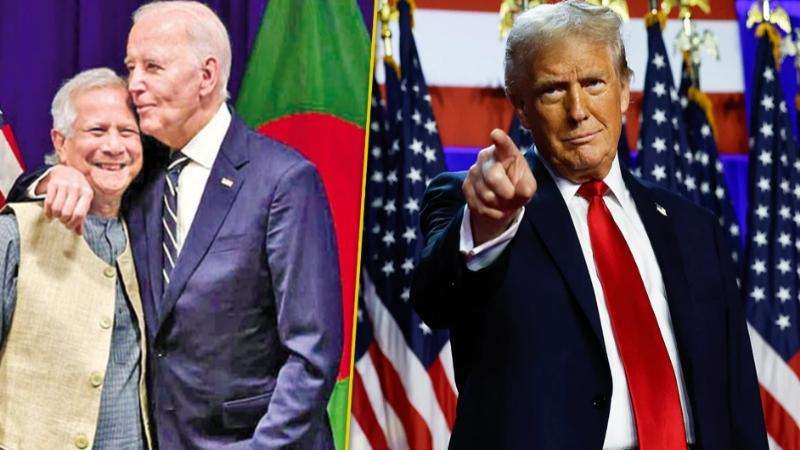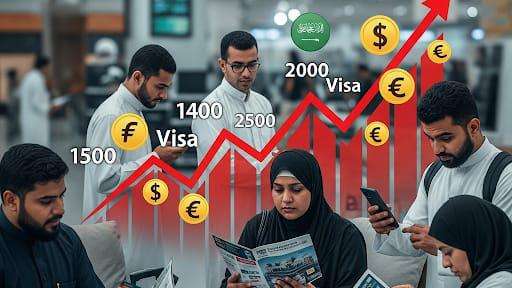Trump's Tariff Tsunami and Bangladesh's Precarious Crossroads
Washington D.C. & Dhaka: In a move poised to send shockwaves through the global trading system, U.S. President Donald Trump has officially imposed a hefty 35% tariff on all Bangladeshi goods. This unilateral declaration, delivered via his preferred communication channel, Truth Social, marks a significant escalation in his "America First" trade agenda and raises immediate alarms for Bangladesh's export-driven economy, particularly its vital Ready-Made Garment (RMG) sector.
A Calculated Blow to Bangladesh's Competitiveness
The 35% tariff, while marginally lower than Trump's initial 37% proposal three months ago, is a stark contrast to the 20% tariff recently finalized with Vietnam, a key competitor to Bangladesh in the global apparel market. This disparity immediately puts Bangladesh at a severe disadvantage. Prior to Trump's presidency, Bangladeshi imports faced an average U.S. tariff of 15%. The new rate effectively doubles the cost for U.S. buyers, forcing Bangladeshi RMG manufacturers to either absorb significant losses or drastically cut their prices to remain competitive, jeopardizing profit margins and potentially leading to widespread job losses and factory closures.
President Trump's public letter to Chief Adviser Muhammad Yunus, posted at 2:36 AM Bangladesh time, underscores a new era of unconventional diplomacy where formal negotiations are seemingly superseded by social media pronouncements and unilateral demands. The stern warning against retaliatory tariffs – threatening an additional 25% levy – further illustrates the administration's aggressive stance, leaving little room for a reciprocal response from affected nations.
While the letter offers a theoretical olive branch for countries willing to "open your heretofore closed Trading Markets to the United States," the current high tariff immediately places immense pressure on Bangladesh to concede to U.S. demands or face severe economic contraction. The ongoing presence of a Bangladeshi delegation in Washington for last-ditch talks now appears to be a mere formality in the face of Trump's seemingly final declaration.
Beyond Bangladesh: A Global Tariff Offensive
Bangladesh is not alone in facing Trump's tariff onslaught. Myanmar and Laos have been hit with 40% tariffs, Cambodia and Thailand with 36%, Serbia also at 35%, Indonesia at 32%, and South Africa, Bosnia and Herzegovina, Japan, South Korea, Kazakhstan, Malaysia, and Tunisia all facing 25% tariffs. This broad application signals a systematic recalibration of U.S. trade relations, prioritizing domestic manufacturing and bilateral trade surpluses over multilateral agreements and free-trade principles. The precedent set by the Vietnam deal, which saw tariffs slashed from 46% to 20% in exchange for Vietnam eliminating all tariffs on U.S. products, suggests a transactional approach that demands significant concessions from trading partners.
Bangladesh's Internal Turmoil: A Perfect Storm?
The imposition of these crippling tariffs comes at a particularly vulnerable time for Bangladesh. The interim government led by Nobel laureate Dr. Muhammad Yunus is reportedly facing significant internal challenges and divisions. Sources close to the administration suggest that Dr. Yunus himself is growing increasingly frustrated and may be considering stepping down from his position. This internal instability, coupled with a lack of clarity regarding the timing of the next general election (with whispers that it might not occur before March of next year, despite earlier calls for earlier polls), creates a volatile political landscape.
The insinuation that Trump's actions are a direct personal affront to Dr. Yunus, while speculative, highlights the deep undercurrents of political interpretation in Dhaka. Regardless of personal animosity, the tariffs will undeniably exacerbate existing economic pressures and could further destabilize a government already perceived as struggling on multiple fronts.
The Road Ahead: Economic Hardship and Political Uncertainty
For Bangladesh, the implications are dire. The RMG sector, which accounts for over 80% of the country's exports, will bear the brunt of these tariffs. Reduced orders, tighter margins, and a potential exodus of buyers to lower-cost regions (such as Vietnam) could lead to widespread factory closures, job losses, and a significant blow to the national economy. The ripple effect will be felt across various industries and segments of society, threatening to unravel years of economic progress.
The confluence of external economic pressure from the U.S. tariffs and internal political instability within the Yunus government presents a formidable challenge for Bangladesh. The coming months will be critical as the nation navigates this complex landscape, facing the prospect of severe economic hardship and deepening political uncertainty. The ability of Dr. Yunus's government to unite and effectively respond to both the trade crisis and its own internal divisions will determine Bangladesh's trajectory in what promises to be atumultuous period.








.svg)


